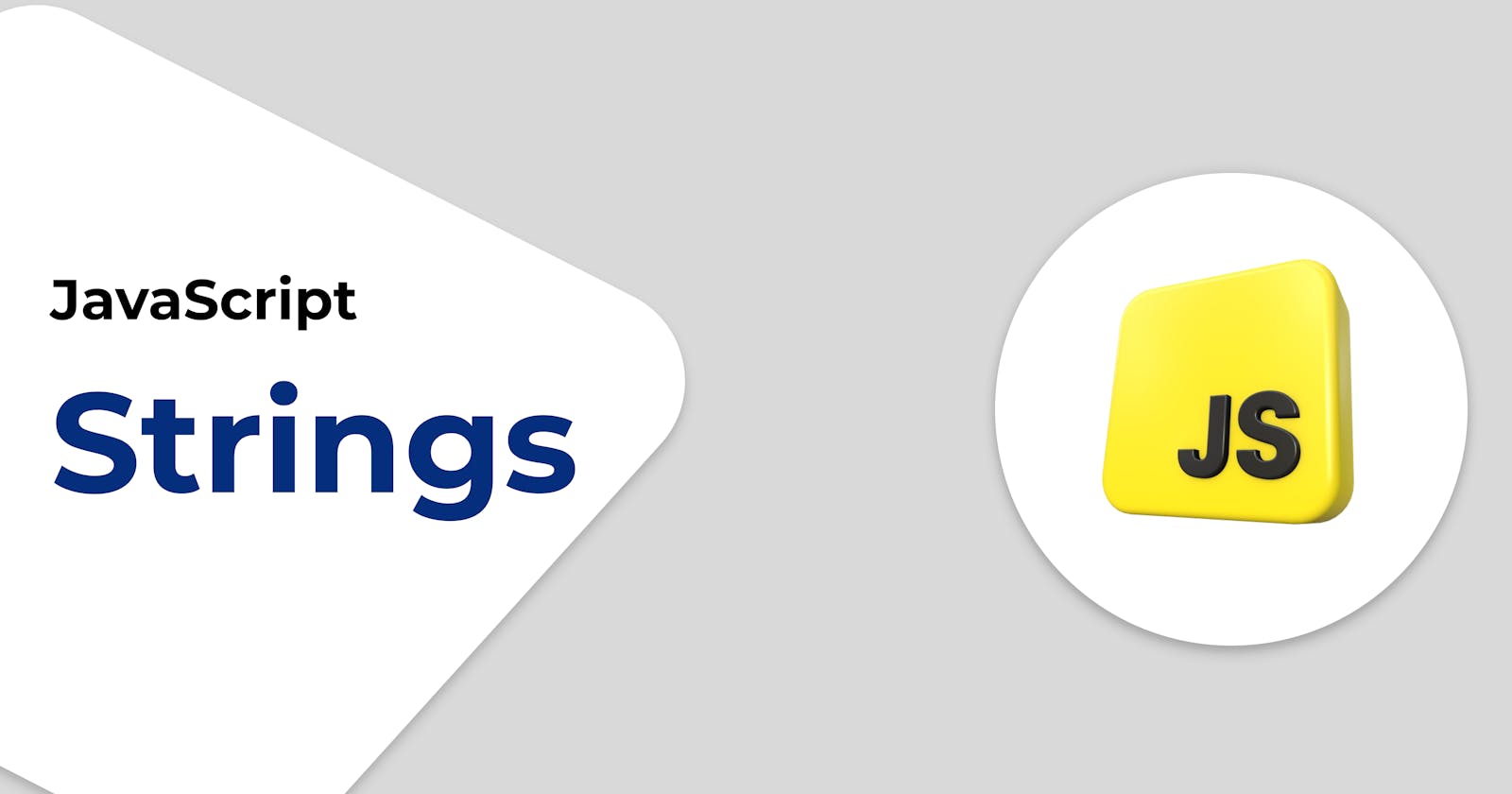Table of contents
What is a string?
In programming language, a string is a collection of alphabets like "mohit" is a string and It is the one of the fundamental data types that is used to store and manipulate text.
Strings are primitive datatype that means it is immutable that means once the value is declared as String, cannot be updated later.
String are written in quotes it may be either backticks, single quote or double quote. Everything written in the quotes will result as string no matter what it is like
"123"is a string.
Creating String
Template Literal
// First way
// using Template Literal
const str = 'Ram'
const str2 = "Love"
console.log(`${str} is ${Love}`)
/* output -->
Ram is Love */
//second way
// using Object
let str = new String("abc")
console.log(str)
String Methods
Let's understand every method directly in practical. Theory will be shared as comments form
const abc = "Kotlin"
Length
console.log(abc.length) // 6CharacterAccess
console.log(abc.charAt(0)) // K // Returns the character at the given index. console.log(abc[0]) // K // alternative way to get the char at given index console.log(abc.charCodeAt(0)) // 75 // Returns the Unicode code of the character at the given indexConcatenation
// let's have another string let xyz = "Java" console.log(abc + " " + xyz) //Kotlin Java console.log(abc.concat(" " + xyz) // Kotlin Java console.log(abc + xyz) // KotlinJava console.log(abc.concat(xyz)) // KotlinJavaCaseManipulation
console.log(abc.toUpperCase()) // KOTLIN console.log(abc.toLowerCase()) // kotlinSubstring Operations
console.log(abc.slice(0,4)) // kotl /* str.slice(start, end): Returns a section of the string from start to end (excluding end) */ console.log(abc.substring(0,4)) // kotl /* str.substring(start, end): Similar to slice(), but allows negative indices */ console.log(abc.substr(0,4)) // kotl /*str.substr(start, length): Returns a section of the string of specified length starting from start. */Searching
console.log(abc.indexOf('i')) // 4 /* Returns the index of the first occurrence of substring or -1 if not found. Index starting from 0 */ const a = "aiini" console.log(a.lastIndexOf('i')) // 4 /* str.lastIndexOf(substring): Returns the index of the last occurrence. */Matching
console.log(abc.includes('in')) // true /* str.includes(substring): Returns true if substring is found. */ console.log(abc.endsWith('in')) // true /* str.endsWith(substring): Returns true if the string ends with substring. */ console.log(abc.startsWith('J')) // false /* str.startsWith(substring): Returns true if the string starts with substring. */Replacement
const replaced = abc.replace("Kotlin","JavaScript") console.log(replaced) //JavaScript /* str.replace(oldValue, newValue): Replaces the first occurrence of oldValue with newValue. */ let o = "aiiiin" const replacedAll = o.replaceAll('i','j') console.log(replacedAll) // ajjjjn /* str.replaceAll(oldValue, newValue): Replaces all occurrences. */Splitting
const hello = "hellow world" console.log(hello.split(' ')) // [ "hellow", "world" ] /* str.split(separator): Splits the string into an array based on the separator. */Trimming
const hell = " sdafadf " console.log(hell.trim()) // sdafadf /* str.trim(): Removes leading and trailing whitespace */ console.log(hell.trimStart()) // sdafadf..... (dot are whitespace) /* str.trimStart(): Removes leading whitespace. */ console.log(hello.trimEnd()) // .....sdfadf /* str.trimEnd(): Removes trailing whitespace. */
Immutability
Whatever function we have performed on will not change the original declared string. However it looks like we have updated the value but this is not actually true. In fact, the original string will pass the reference to others in order to be manipulated. Only references were changing not that string.
Congratulations!!!! you have mastered JavaScript Strings. 🥂
If I am able to create value in you then make sure to follow me on various platform.
Thank you for reading 🤍
Written By Mohit Soni
